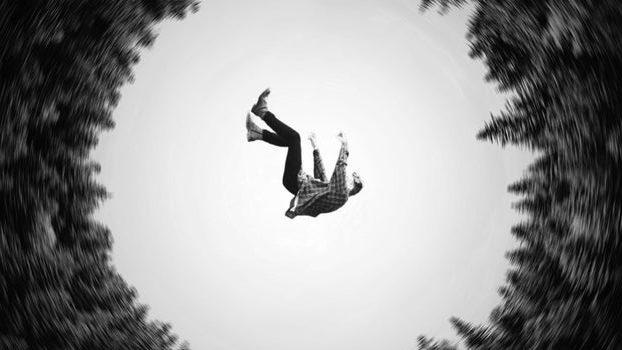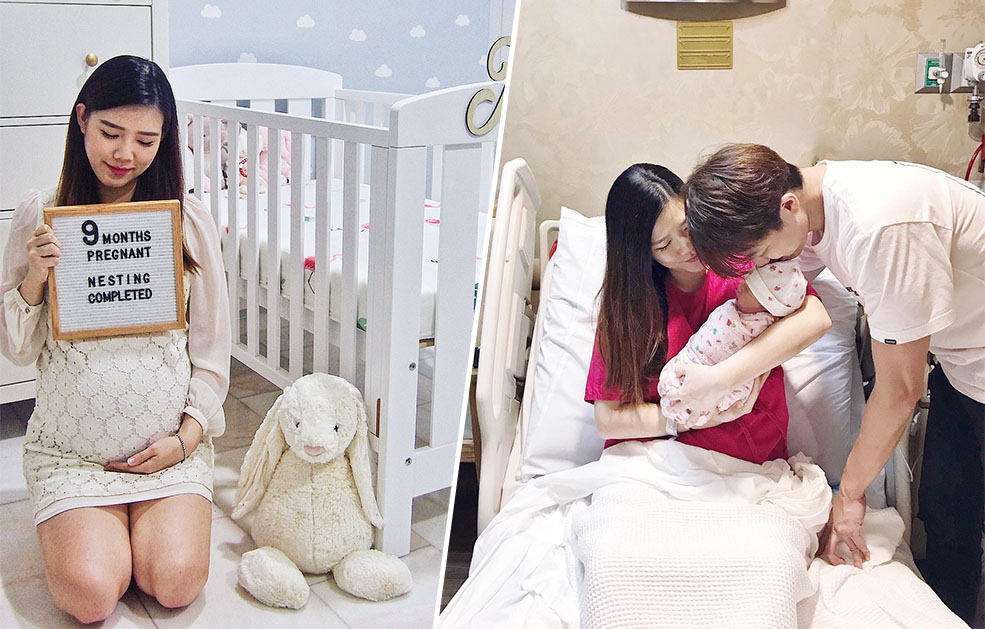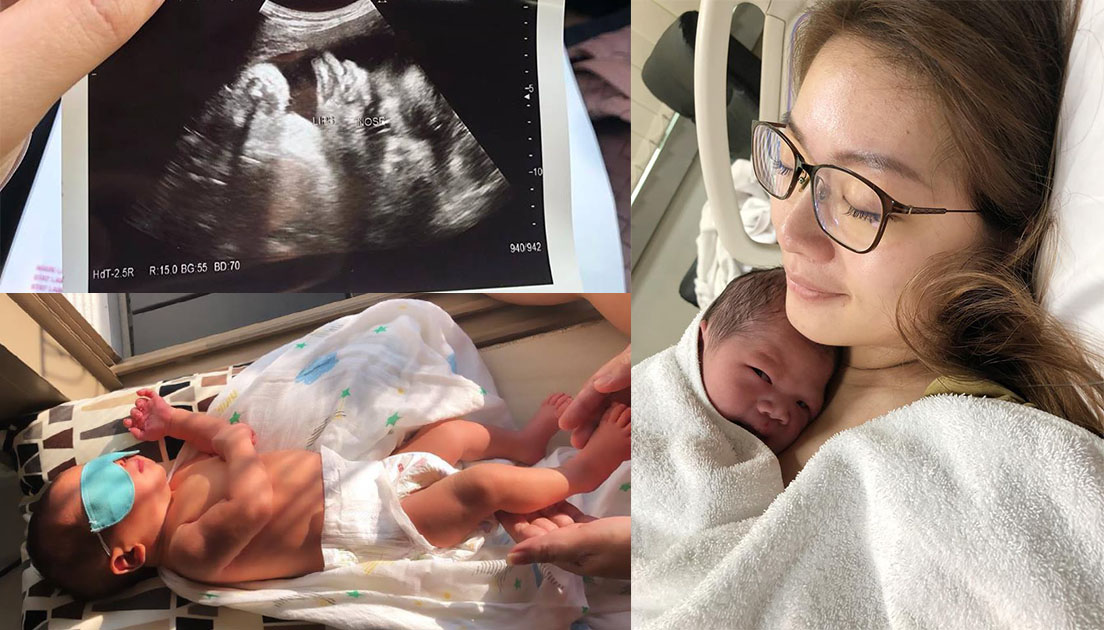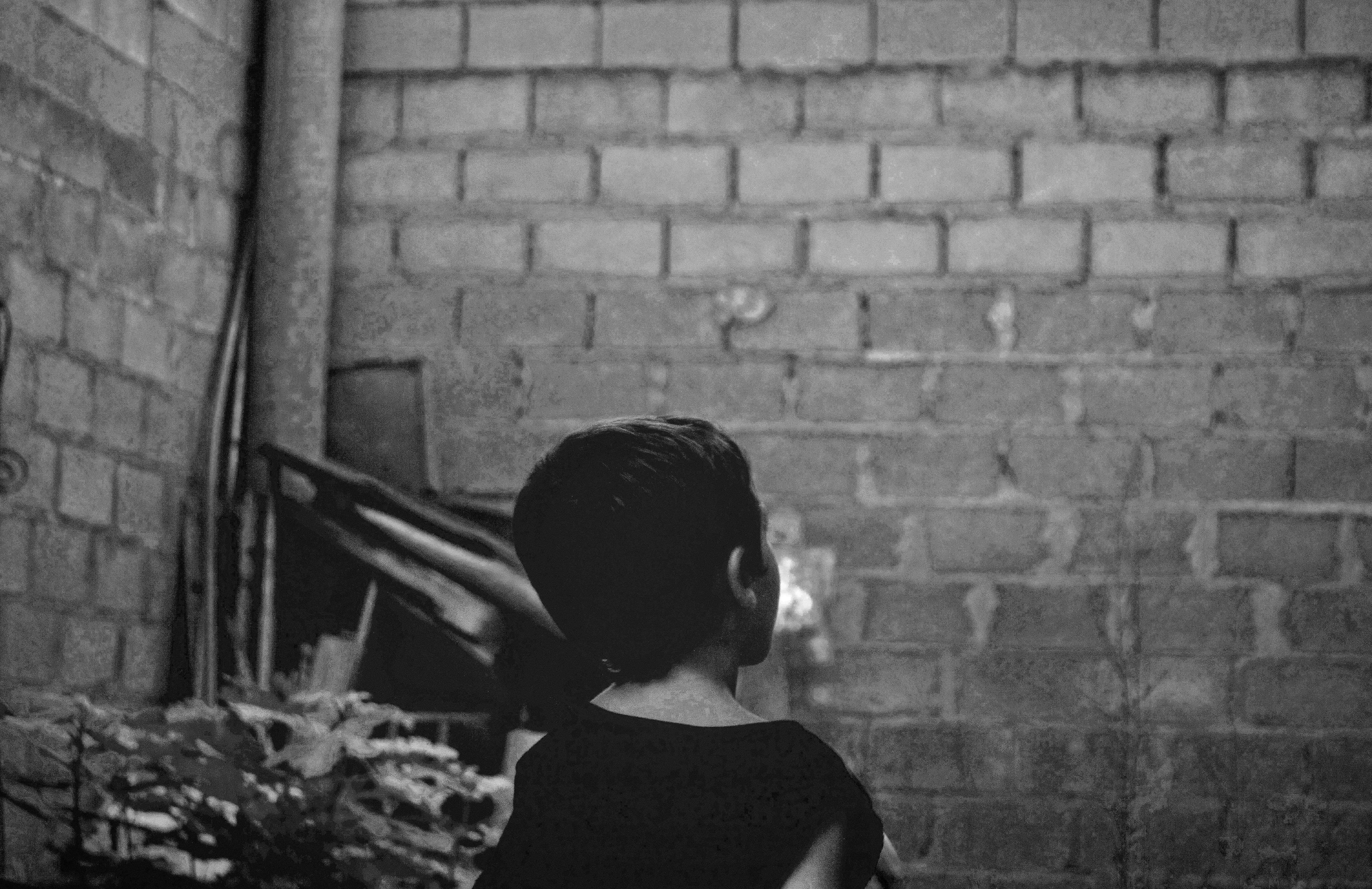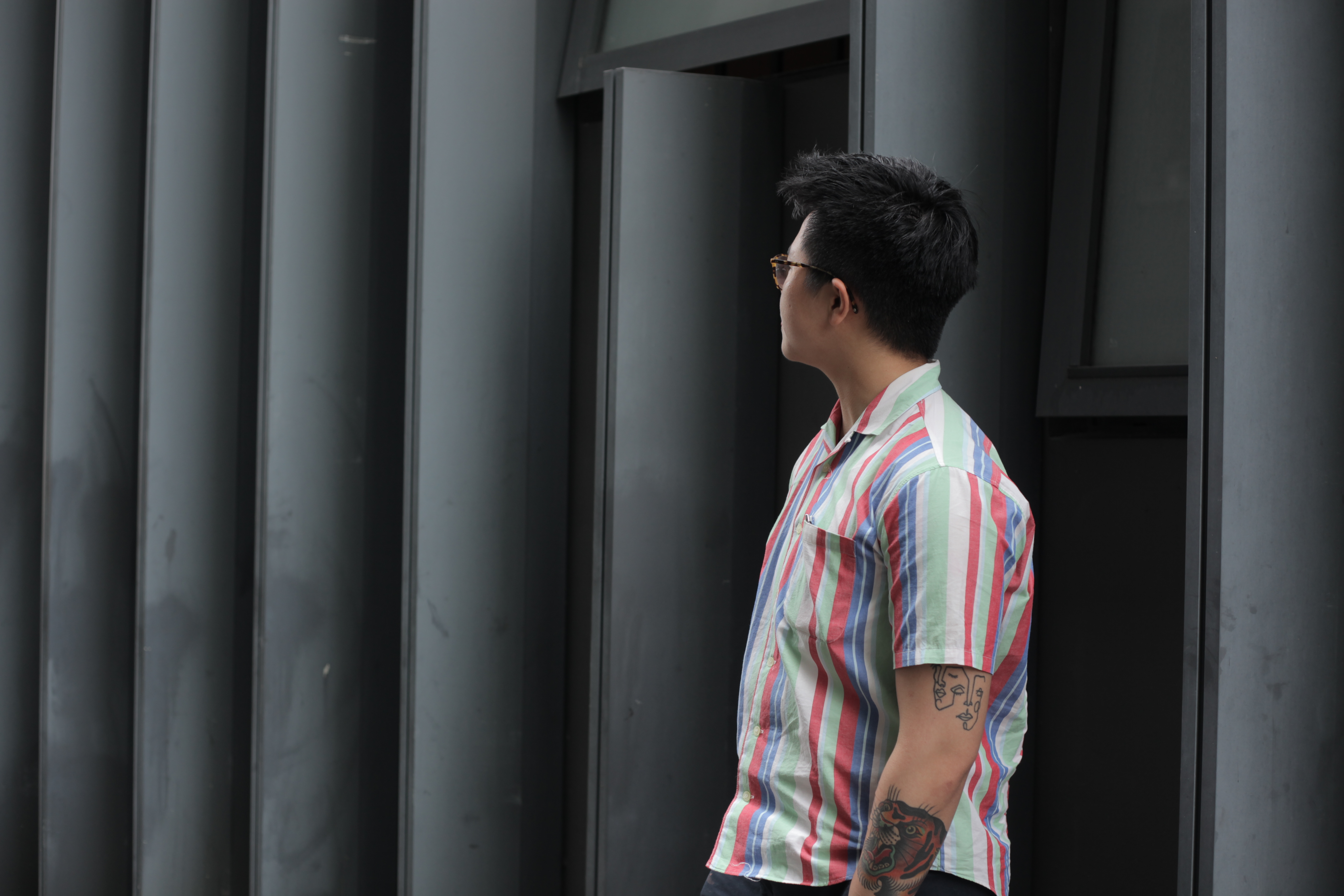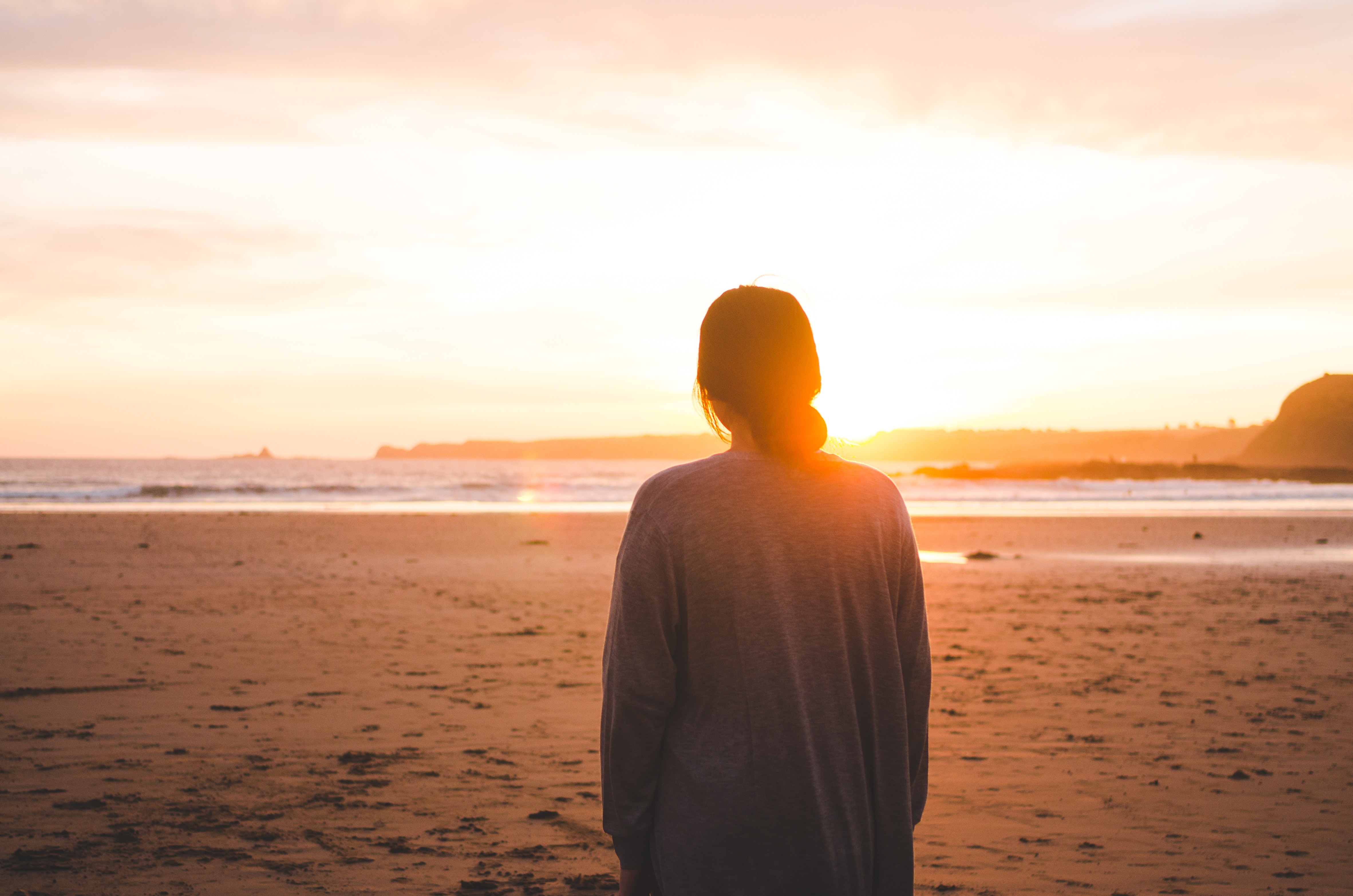2am.
I was lying on my bed alone with my thoughts, contemplating life and thinking about what the point of living even is.
There were often nights like this, where I would touch the window grilles in my room as I contemplate ending my life. I’ve also considered many other ways to take my own life, but on that particular night, the urge I had to really end it once and for all was beyond what I have ever felt.
This time, the compulsion to jump was stronger than ever. I sat up from my bed, which is right beside the window, and looked out. I could have easily stood up, opened the grilles, and jumped out.
I just wanted to end it so that I don’t have to be in pain anymore. And as I looked down, I could imagine seeing my body six storeys down, sprawled across the ground with my head smashed open.
I fought really hard to hold myself back from jumping out the window that night. For what felt like an eternity, I sat there, and if not for that faint inner voice that told me ‘maybe things will get better’, I would have been gone that night.
This happened more than two years ago, but I still remember it so clearly.
Emotional Baggage
It was a very stressful period of my life as I was juggling a lot of responsibilities in school and at my polytechnic dance club, where we were gearing up for an upcoming concert.
Right around that time, I had also just broken up with my ex. My friendship with the two other people I was closest to had started to go sour as well. Everything began to fall apart, because these were three people who made up my only support systems ever since I fell out with my family when I came out to them.
Losing these support systems made me wonder: Is there really anyone there for me? It was the catalyst that drove me to turn to suicide, since it didn’t seem like anyone was going to care.
The pain of rejection and of not being understood by anyone barely scraps the top of the turmoil of emotion which I’ve tried to suppress for a long time, and it is suffocating.
In retrospect, it was also the culmination of all the emotional baggage that I have carried with me ever since my secondary school years.
Even back then, I remember being (on hindsight) a little dramatic as I texted my goodbyes to some friends in a group chat. I was still too young to have the guts to actually do anything, but I cried for a long time after that.
I remember two friends who empathised and asked if I needed help. Then, there were others in the group who started saying things like:
‘what the hell is wrong with you?’ and, ‘if you want to behave like this we should stop being friends’.
I remember trying to seek comfort from my parents, only for them to repeatedly tell me to stop crying. Their intentions meant well, but they just didn’t know how to deal with emotions. They didn’t understand the extent of why I was crying. They probably thought that I was just sad, and they swept that night right under the bus.
And I don't blame them for responding so passively, because that is just the way they, and a lot of us were brought up: We don't know how to talk about emotions.
Trust the process you’re going through
It was a very dark period and every time I thought ‘wow, can things get any worse?’, things got worse. In that moment, it felt like there’s just no point to life. It also felt like whatever anyone said, nothing really got through to me.
Fortunately, I didn't jump that night.
I held on to that small glimmer of hope that maybe, just maybe, things will be better.
In my mind, I kept trying to imagine better days. I thought about moments where I felt free and liberated, and I just tried to hold on to that. I tried to envision what could be in 10-20 years: The dream of being in my house with my partner, happy.
Those were both hopeful and depressing thoughts because of how bleak reality seemed at that point. But it helped me rationalise that maybe this is just a Low. Maybe life is just that way.
It’s a bad day, but it’s not a bad life.
To those who are struggling: Take it 10 seconds at a time.
This comes from Kimmy Schmidt: Take it 10 seconds at a time. If you can get through 10s, then you can get through another 10s and the next 10s, and the next.
Don’t let anyone put a label on how much pain you are feeling. Sometimes people will say things that undermine the pain you are feeling but know that whatever you are feeling is valid.
As much as it hurts, always hold on to the silver lining and always know that they are people around you who love you. I’ve come to realise this from a video that has saved my life.
It took me awhile to figure this out, but everything happens for a reason.
Good times will come again. It’s very hard to see it and I completely understand, but take it slow. And don’t be afraid to talk about it. Don’t be afraid to find professional help.
This story is written by Millennials of Singapore, as told to us by the featured individual.
---
In line with the Suicide Prevention Week, the Millennials of Singapore team would like to show our support to everyone out there who are fighting battles with mental health. Let us #HopeThroughTheNight as we fight against suicide.
If you are struggling, there are many resources available to help tide you through. Never be afraid to talk about your struggles, and if you ever need someone to share your troubles with at any point of time, you can always reach out to @samaritansofsingapore or call 1800-221-4444 for emotional or crisis-support. There are people available there for you 24/7.
(Header Image Credit: Entrepreneur India)
I never knew it would hit me because I have never been the emotional type, but it did, and it has been a heck of a roller coaster ride.
Slightly more than a year ago, I gave birth to Kayla, and for the first three months after, I struggled with this constant ball of fear in my chest. I had no appetite for meals, I cried everyday, I lost weight, and my milk supply dipped so fast that I couldn’t breastfeed even if I wanted to.
As a first-time mother, I was overwhelmed by this new lifestyle that no amount of preparation could truly prepare me for.
Initially, we didn’t plan for Kayla to happen, as my husband and I were only married for six months at that point. And to be very honest, I felt fear the moment I knew I was pregnant. I knew motherhood was not going to be a walk in the park because of the stories I have heard from fellow moms. I was terrified of what's ahead.
Unlike in school where there are lessons and ten year series to walk you through each subject, there is no ‘manual’ for motherhood. Everyone's experience is different and the only way to know what motherhood really is, is when you become a mother yourself.
Nonetheless, I prepared myself for motherhood in the possible ways I could: by making sure we had all the physical stuff ready. Things like the baby’s room, the milk bottles, and the medications. It was an assurance that at least, whatever we need will be available at our disposal when Kayla is born.
Then, Kayla Came
The first 28 days was a whirl, but at least I had a confinement nanny around. I was still recovering from the natural birth process and my stitches still hurt. I wasn’t very mobile. As I was breastfeeding, I couldn't get more than four hours of sleep each time. It was really tiring.
Deep down, it started to dawn on me how scary it was that I am now responsible for this little human being. However, I also wanted to give her the best I can, and I tried my best to learn as much as I could from my confinement nanny before she left. And when she left after the first month, I started to lose control.
I lived in constant fear and anxiety.
I'm a self-professed worrier. I think a lot and cannot help but imagine the worst scenarios that can happen. This made me feel anxious all the time.
As a first-time mother, you find yourself forming an idea of motherhood based on what you read on the internet and from other mommies. For me, what I read and hear became a set of expectations for myself. I started to follow these set of 'rules' religiously, and even if the most little of things go out of place, it'll mess me up.
For example, I would expect Kayla to take this number of naps a day, or to finish drinking this amount of milk, and I would get really worried when those 'quotas' are not hit. The pressure of living up to these expectations I placed on myself and the stress of feeling inadequate consumed me over time.
I didn’t know how to handle a child. I felt so lost and lonely. Motherhood was something so new to me and I was just so afraid that I wasn’t doing things right or wasn’t giving my best to my child. I wasn't even in the right state of mind. I was just this person following a schedule: always on stand-by to supply Kayla her next milk feed, change her diaper, burp her, and bathe her.
As a chirpy and outgoing person by nature, I knew something wasn’t right as I was crying every day. I lost all appetite for meals. Waking up every morning became a dreaded affair because I will be filled with anxiety the moment I opened my eyes, and that awful feeling would intensify through the day.
It was so mentally draining.
The Shame That Came With Having Postnatal Depression
I struggled with the thoughts of how it was possible for me to have depression. I was ashamed. A part of me felt like I had no right to feel this way since I had been looking forward to being a mother for the past 10 months. How could I be depressed now?
Fortunately, I saw what I was becoming, and I knew that this was not the kind of lifestyle I wish to continue with. It was so painful and stifling to be on the edge of a breakdown every single day.
I wanted the old Meiting back and with that realisation, I decided to open up. I sought help from my mom, whom gave me the chance to have a few hours off per week. I spoke to my husband as well, and I implored him to bring me to a doctor if I were to continue to cry for another week, as I knew I would need professional help.
When I did open up, things started to look better.
Learning To Let Go
In reality, when it comes to handling babies, things rarely goes according to plan.
My mother and husband played a big part in my recovery and it is their support that helped me come out of postnatal depression after two months. The subsequent six to eight months still saw me having moments of anxiety attacks, but it was manageable as I had learnt to talk about my depressive thoughts. And my family and friends became my wake up call.
My husband always tells me to let go and to just follow our daughter's cues. It is reminders like this that remind me of the pressure I had unwittingly placed on myself, and how I need to take it easy.
It’s now my second year as a mother. Looking back at myself as a mother back then, I’m grateful for whatever I had gone through.
I'm grateful for my child, Kayla. We did not plan for her to happen. But she is now, to me, the greatest gift from God. Kayla has completely changed my perspective as a person, and I have grown and learnt so much from being a mother.
This Mother’s Day, I'm also super thankful for my mom.
Without her, I will not be able to go back to work with a peace of mind. Without her, I don’t know how I would have been able to deal with my postnatal depression. Her unwavering love and support for Kayla and me have left a mark on me, and has shown me once again, what unconditional love is. And now that I've experienced it myself, I know how fortunate I am to be blessed with the role of a mother.
To all first-time mothers and mothers-to-be
No mothers talk about it, but postnatal depression is very real. It is common and 80% of my mommy friends have experienced it, be it in a mild or very serious form. Because nobody really talks about it, you will feel like postnatal depression isn’t ‘normal’ or ‘right’. I know this because those were emotions that I grappled with.
It sucked the life and joy out of me. It affected my husband and made him feel distanced from his once loving wife. It is important to acknowledge that these feelings of fear, doubt, anxiety, and sadness are very real, for this will help you get better.
The start of motherhood will seem scary and lonely, but it will get better. There will be bad days but the storm will pass and you will be fine.
Cherish the good times and learn from the rough ones. You’ll make it through eventually. There's nothing more rewarding and fulfilling than being a Mother. You'll love it. Maybe not now, but you will. We are made for this.
This story is written by Millennials of Singapore, as told to us by Lian Meiting.
Also read: These 14 Heartwarming Stories Show That A Mother's Love Is Like No Other.
(All images used in header image taken from Lian Meiting)
19th April 2019—The day before
5.30am
The first wave of ‘fake’ contractions kicked in at irregular intervals of 8 mins, 10 mins, 4 mins, and 6 mins. I recorded the duration and intervals of each wave on the contraction tracker app.
The day went on as per normal. My mother-in-law even packed chicken rice for Fong (my husband) and I and we had dinner at home.
12pm
I had a bloody show but the contractions slowly went away.
10pm
The contractions came again. This time, the contractions were starting to come on an average of 6 to 7 mins and the intensity of the pain was getting stronger. I tried lying down but it made me feel even worse. I couldn’t sleep.
I wondered: Is it another round of ‘fake’ contractions again? I wouldn’t want to make a wasted trip to the hospital. But if it were real, I would want to wait until it has passed midnight before we check in so that we wouldn’t be charged an additional night. So, the waiting game began.
I continued monitoring the contractions. The waves started to come in stronger and at shorter intervals. Fong had gone to bed and I started pacing around our bedroom.
I tried to find an optimal position that can help relieve the pain. I moved from sitting in the armchair to a standing position, to sitting down on the floor against the wardrobe, to sitting up on my bed, to lying down on my bed. I tried the deep breathing technique, hoping it will help. But nothing worked. I wondered if I should wake Fong up, but I wasn’t sure if this was the real deal, so I continued to time the contractions and endure the pain.
20th April 2019—The Day
2.30am
Fong was shifting around in his sleep when he accidentally kicked me. He woke up and found me sitting at the edge of the bed. I told him I was in pain and my contractions had been coming in fairly regular intervals. He suggested that we make our way to the hospital slowly, given that I already had a bloody show this afternoon.
He remained calm and collected as he started to do some last minute packing. I went to take a long shower, pausing to grab hold of the shower head pole whenever the contractions kicked in. Then, it finally dawned on me that buibui (my baby) is indeed coming. We made our way to Mount Elizabeth Novena Hospital once I was done.
4am
We checked in to the delivery suite. I was given enema to clear the bowels first before the nurses put me on IV drip to ensure I was hydrated throughout. The urine catheter was also put in place. The nurse then placed two sensors across my tummy using elastic straps, one to monitor the contractions, one to monitor buibui’s heartbeat. It was then she checked that I was already 4cm dilated.
5am
The anesthetist came and gave me the epidural. I was asked to arch my back as much as I could. She had to poke me twice or thrice because I moved.
Soon after, I could feel a cooling sensation down my back. The effects of the epidural kicked in around 15mins later when I felt both my legs go numb. I was also given oxytocin via drip in order to help labour progress. Once in a while, the nurse would come in and adjust the dosage of the epidural. This was to ensure that I could still feel some contractions so that I could push better later on.
8am
I felt tight contractions on my lower pelvis. The nurse checked and noticed that my water bag has burst and I was 8cm dilated. Buibui’s head was gradually moving down. I could start to feel the painful contractions again although I was on epidural.
This was the part where buibui’s heartbeat started to drop. The nurse quickly gave me the oxygen mask and started shaking my tummy as she tried to locate buibui’s heartbeat again. She shook my tummy multiple times and asked me to breathe in deeply. I could hear the monitor projecting a heartbeat that was slowing down.
After a few minutes, we finally managed to stabilise buibui’s heartbeat. You can only imagine how worried I was. The nurse explained the series of events to me and shut off the oxytocin drip. I didn’t dare to move an inch anymore.
9am
Stronger and stronger waves of contractions kicked in. It felt as if I didn’t have any epidural at all. The nurse increase the dosage from 12ml to 15ml. I asked her if the drugs will affect buibui’s heartbeat again.
If it will, then I would rather bear with the pain than allow it to affect my baby.
The nurse went out to call the anesthetist. When it was just Fong and I left in the room, I started crying uncontrollably. I was in so much pain and I was worried about buibui at the same time. I continued to ride through the unbearable contractions, telling myself that:
“Pain is temporary. Buibui is forever.”
But the pain overpowered my mind and body, so much that I told Fong that I wanted to just do C-section now. Fong tried to console and encourage me. I was pretty sure he felt so helpless watching me cry. The nurse came in and started consoling and encouraging me too. She gave me laughing gas and told me that the anesthetist approved another stronger drug for the pain. But it will, again, take 15mins for the drug to take effect. I continued my mantra.
10am
I was fully dilated and the nurse practised pushing with me. The lower end of the bed was removed and two leg rests propped up at the sides. As the contractions came in, the nurse guided my breathing and pushing. She was so encouraging, telling me that she could see the baby’s head and that he has a lot of hair. This motivated me as well. Another nurse placed a mirror at the end of the bed so that I could see buibui’s head as I pushed.
11am
My gynae reached and with three pushes, Baby Eyden was born.
Both Fong and I teared together. It was such an amazing moment and I kept reliving it over and over again in my head.
We requested for delayed cord clamping, and Fong cut the umbilical cord. They put Eyden on my chest and I marvelled at how handsome he is.
The gynae continued to stitch me up as the nurses proceed to weigh and check on Eyden. He was born 3.4kg, 52cm long, and 35.5cm head circumference. The nurse complimented on my wonderful performance again, birthing this big-size baby with my petite body.
After a while, we tried direct latching Eyden onto me. But I was shivering so badly from the side effects of the epidural, so we passed Eyden to Fong for skin to skin contact instead. At that moment, I felt so thankful to have Fong and the nurses by my side throughout.
Now I understand. This, is why mothers always say: “Everything is worth it.”
This post was originally written by Serene Heng. We have reproduced this with her permission.
Also read: I Became A Dad At 22 - Our Parents Opposed But We Kept The Baby.
(All images used in header image taken from Serene Heng)
“Can you dabao McDonald’s home for your dad?”
I felt my palms get sweaty and my heart beat faster as I read the text from my mum on the way home from school one day. Should I think of an excuse to not do so? Maybe tell her I don’t have enough money to buy dinner for my dad?
Surely ordering a McDonald’s meal over the cashier wasn’t that difficult. And yet, the thought of having to talk to a stranger left me in a cold sweat. What if I messed up the order? What would the cashier think of me? I hated how these thoughts would consume me at every step of the way. Why couldn’t I be like the other kids? All I wanted was to be normal.
LEARNING ABOUT SOCIAL ANXIETY
Whenever my friends ask me, “Why you don’t wanna join us? Don’t be so anti-social leh,” I wish I could’ve told them that it’s not that I didn’t want to hang out with them, I was just afraid that they wouldn’t like me.
Or when my secondary school teacher gave me feedback that went something like, “You’re too shy in class and should open up and take part in class discussions more,” I wish I could’ve told her that it’s not that I didn’t want to participate more in class, I was just afraid of the humiliation from answering questions wrongly. Would I become a laughing stock? And if I get it right, would they think that I’m just showing off?
In school, I pretty much kept to myself most of the time and I didn’t have a lot of friends.. To an outsider, I was shy and introverted. I guess I came across as antisocial at times.
Because everyone kept calling me shy, I believed that that’s all that it was. But no matter how much I tried to break out from my “shyness”, I couldn’t.
One day, my friend noticed that I would get panic attacks before class presentations. My heart would race faster and cause a lump in my throat that made it difficult to breathe. She encouraged me to talk to the school counselor.
My school counselor was the first person to tell me that I may have social anxiety disorder. She referred me to a psychiatrist, who diagnosed me with it.
I was finally able to rationalise everything I had been feeling for the better part of my life. However, I also came to realise that it is much easier to let people think that I was just ‘shy’, because when you start telling someone that you have a mental condition, chances are you’d have to start explaining why you feel certain things—how do I explain feelings that I don’t even want to have myself?
Admitting that I had social anxiety to other people was the most difficult part of coming to terms with my mental health. The first time I told someone about my social anxiety, they said: “Huh isn’t that just social awkwardness? I also have!”
I couldn’t blame them for reacting that way but hearing that from friends was still pretty hurtful. It made me feel that what I felt or thought didn’t matter. Them brushing me off made me even more resistant to tell anyone else about it.
Even today, my parents are unaware of my social anxiety. Growing up, I’ve felt the disdain my parents’ have towards mental issues through the passing remarks they make about mental health patients being “attention-seeking” and “weak”.
Because of this, I hid the fact that I had social anxiety to myself. And for the most part of my teenage years, social anxiety controlled my life because I didn’t dare to speak to anyone about it.
WHAT DOES SOCIAL ANXIETY FEEL LIKE?
Social anxiety is not being able to answer questions in class because I was scared of what my classmates would think of me.
Social anxiety is having my heart race 10 times faster when I hear the telephone ring, and then having to rehearse exactly what to say before answering it.
Social anxiety is the constant fear of having my friends talk about me behind my back, because in my mind, I'd keep thinking that they don’t actually like me.
Social anxiety is listening more than talking in group discussions because I’ve convinced myself that my opinions don’t matter, and that I will just be looked down upon.
It decided what I did and didn’t do, and this constant self-doubt and fear got so bad that it created limitations that hindered my everyday life. No matter how illogical the thoughts I had were, I would constantly find reasons to avoid situations that could trigger my social anxiety in the slightest way.
Back when I was on an internship, I called in sick on the day that I was supposed to head for a meeting at another office. The thought of facing the unfamiliar and embarrassing myself in front of my boss and associates scared me. It wasn’t just the nerves either. I genuinely feared the consequences of failure. In my mind, this just kept replaying: “If I mess this up, my boss would hate me and my entire six months of internship would become a nightmare.”
Slowly, I realised that I was letting my social anxiety influence my day-to-day decisions. I had let it consume my life in a lot of subtle ways and there was a point I thought I would never be able to overcome my social anxiety.
For years I ignored having to deal with it. I stupidly thought that ignoring it would somehow make the problem go away. But I realised that it was impossible to avoid situations that could trigger my social anxiety forever. After all, I’d have to meet people everyday, be it at work, in school or in public, I would always be surrounded by people. And with that, I would always be scared of what the people around me were thinking of me.
LEARNING TO RIDE WITH IT
When I joined the workforce at 23, I found that the people around me were a lot more open-minded and accepting, contrary to the people I’ve met in school or at home. That made me comfortable in opening up about my social anxiety.
For the most part, having social anxiety means putting up an act everyday, because it’s difficult for someone else to recognise this disorder, or differentiate it from merely being shy. But finally being able to openly talk about it and realising that there are other people out there who can relate to my struggles made me feel less alone.
I would be lying if I said that I don’t get sweaty palms anymore when I get an unexpected phone call or if I have to share my thoughts to a group of people. And I still often struggle with the habitual thoughts that my friends or colleagues are speaking ill of me whenever I hear them whispering near me.
Social anxiety is probably something that I will never ‘get rid of’ completely, it’s every McDonald’s order, every first conversation, every phone call to a stranger, that has helped me get better over the years.
I’ve come to accept that my social anxiety will always be a part of me and that I should grow with it, instead of against it.
Also read: 8 Singapore Shared Snapshots Of What Depression Was Like For Them
(Header Image Credit: Budagchin Erka)
Violence was prevalent in my family ever since I was 10 years old. My parents struggled with finances and my dad turned to alcoholism. The mounting stress and tension caused my parents to fight a lot and they started taking out their anger on us. They would often punish me over the smallest things, emotionally and physically abusing me (hitting me).
And when my parents fight or have physical outbursts, I’d tell my sisters to hide in the room while I put myself out there to bear the brunt of my parents’ anger. Somehow, it felt like the right thing to do for my siblings as the eldest. I also felt like it was my duty to be the middleman in helping my parents resolve their disputes—a responsibility I carried on my shoulders as the first child. I even took on three part-time jobs while in poly so that I could help with the finances.
There was a lot of emotional void and I was constantly trying to do things to please them or make them happy, so that I would get more love from them. I grew to have a people-pleasing attitude because of that.
Those traumatic experiences took its toll on me and I started to have depression and anxiety.
Then, I had my first mental breakdown at 20.
What Is There To Live For?
For eight months, I locked myself in my room and tried multiple ways to kill myself. I was in so much pain internally that I felt like I really could not take it anymore. I felt like there was no other way out of the plight I was in. Everyday was just a constant fight to stay sane amidst the fights, emotional abuse, and physical beatings.
The details are all fuzzy now, but I remember trying to cut myself, hang myself, and overdosing. Fortunately, I didn’t know enough to properly take my life back then, and when the suicide attempts didn’t work, I continued cutting myself instead—to feel the pain. I could not process all those pent-up frustration, anger, and sadness I had, and in order to let out the pain that I felt inside, I felt like I had to feel pain on the outside.
At that point, I had already been going to the doctor’s and had been taking medications for depression and anxiety. However, my parents weren’t convinced that I was struggling with mental issues.
My mom kept my medication and refused to give it to me. To my parents, it was their way of preventing me from overdosing, but even when I needed it, they wouldn’t give it to me—even when I had a full-fledged panic attack, my dad simply stood there and said:
“Don’t be a drama queen.”
As far as my parents were concerned, I needed to snap out of it.
Fast forward to 2014 when I was 25, I had my first major dissociative episode.
I Lost My Memory And Dissociated
I had been feeling really stressed out from juggling a few jobs, and had to complete some work at home over this one weekend, when I already had another part-time job that weekend. I made plans to finish that piece of work on Sunday night instead, only to return home on that fateful night to see my dad and a relative drunk and passed out on the couch. The house stank so badly from alcohol and the pools of vomit all across the living room, and my mom was nowhere to be seen. That was the last straw and was what triggered my first dissociative episode.
I lost my memory and began acting like a child for three months.
I didn’t even have a memory of what happened or how I was behaving, and it was through the people around me that I learnt of it.
It is very scary to know that for three months, you were being taken over by this other personality. I didn't know what was going on and it was very unsettling and stressful to know that I dissociated.
Although, it also gave me a sense of comfort in knowing that there was more to what I’ve been feeling than depression and anxiety. After multiple visits to hospitals and various psychiatrists, I started getting treatments that effectively helped me revert to normal adult behaviour. However, the memory that I lost was still gone.
It was a year later when I got diagnosed with DID (Dissociative Identity Disorder), or ‘split personality’ to most people.
I was doing my Master’s in the United States back then, and it was at a psychiatric ward there that I was also diagnosed with major depressive disorder, generalised anxiety disorder, borderline personality disorder, and post-traumatic stress disorder—all of these with triggers that are rooted to traumas that go way back into my childhood.
The Scary Part About Having ‘Split Personality’
When all you know about DID is from how awful and terrible it is portrayed in movies and media (like in Split), it makes you fear having DID yourself. I didn’t like any of my personalities when I was first diagnosed, and the denial lasted a while before I accepted my disorders. But DID is far from what is shown in the media.
Having DID feels like having 28 persons living inside me—which is the number of personalities I currently have.
Image: Gaya
I don’t have any recollection of what happens when one personality takes over. Sometimes, I dissociate within a snap of a finger when the trigger is very strong, like when someone approaches me from behind, at the stench of alcohol, or even men, because of the sexual abuse I’ve been through (I was naive and a people-pleaser). These triggers come from my history—traumatic experiences I’ve had since young.
My past has also made me very sensitive to stress, and I don’t have the capability to handle any change in behaviour from people around me. It’s made it almost impossible for me to get a full-time job. However, I’m also fortunate to be able to make a living from freelance marketing jobs.
But the scariest part of all is not so much of the disorders itself or having to face the people around me. The scariest part is not knowing when I will be suicidal and when I will act on those suicidal thoughts.
Road To Recovery
With the help of various treatments in the US and in IMH, medications, and focus groups, I have come to understand the significance of my personalities.
There are personalities that take over when there are triggers that make me angry. For example, Angie comes out when I’m really, really angry and when she’s in control, it makes me become uncontrollable, physically violent, and extremely strong. There was an event that happened in the US where three men with big build couldn’t hold me down when Angie took over, and I had to be physically restrained when they took me to the hospital.
Then, there’s Viyolante, who thinks of violence, gruesome and graphic acts, and is very specific about who and how she’s going to be violent towards or hurt, but she will never do anything violent.
On the other hand, there are a lot milder ones like Baby Gayu and Wava, who are childlike personalities, and a motherly figure, Moonlight, who takes care of everyone. There’s also a rescuer personality, Ressie, and a ‘non-living’ personality called Memory (or Mem), which is sort of like a treasure chest that holds all my lost memories.
Image: Gaya
I’ve learnt a lot more about my conditions, how to process my emotions, and to logically process the traumatic memories I have instead of dissociating upon triggers.
In the process of recovery, I’ve also had to make the extremely hard decision of cutting my family and husband out of my life, which I did five months ago. I realised that there was no way I could properly recover if I still had to face those triggers when I return home to my family every day.
Image: Gaya
There are many times I feel guilty for leaving home and leaving them, as I feel like I’ve betrayed and ‘abandoned’ them. I’ve always felt responsible to ‘fix what’s broken’ in my family, and I still feel this way. However, I know that if I don’t focus on my recovery right now, there is no way I will be stable enough to face them, much less solve any problems.
Staying Alive For The Prospect Of Better Days
I have a dream to be named one of the most influential women in the world by 35, or doing a PHD in South Korea and then settling there. These are ambitious dreams, but are goals I set for myself to remind me that I have to keep going as there are still things I want to achieve in my life.
But of course, living with mental disorders can be so overpowering that despite having all these goals and aspirations, I still feel empty and battle with suicidal thoughts and aimlessness. It’s a constant and daily fight and I still wake up feeling depressed and suicidal on most days.
However, the process of working my way through it, of recovery itself and believing that someday, I will be able to live a normal life, keeps me going—because I don't know what normal is, I never had a normal life.
These feelings come and go, and it’s always a reminder for me to take it one step at a time.
This story is written by Millennials of Singapore as told to us by Gaya.
Also read: “I Kept Hearing Voices Of People Criticising Me, And I Could No Longer Tell What Was Real”.
(Header Image Credit: Shirley J. Davis)
This article contains an image that some may find disturbing.
Running. This word, synonymous with everyone for a sports activity that requires a certain amount of endurance and physical capability. To me, it means so much more.
There is a love-hate relationship whenever it comes to sports in Singapore, especially running. People with busy lives would see it as an act of healthy living, and do it for the sake of keeping healthy and striking bucket lists off by completing a marathon once in their life. Those bordering on the edge of insanity do it for more than living; bragging rights, personal bests, medals, finisher tees and even podium positions.
For me? Running edges on irrationality and a particular quest. A quest to live. A quest to be better than who I am today, and what I was yesterday and many yesterdays that have passed.
My life
Growing up as a primary school student, I hated sports and any activity that required me to have a certain level of physical endurance. That resulted in my obesity and chubbiness at a young age.
When we're at that age, we are ignorant of things that happen beyond our scope of understanding. Things like cancer, life and death, and also sometimes, our future.
As I entered my teenage years, I started to become more self-conscious. I started to realise every change on my body, and was always wishing I looked a little bit more handsome than that guy who has all the girls at school swooning over.
Then, there was one particular change that made a huge impact on my life, even until now. ‘Cold sores’ and ‘white patches’ started appearing on my body, especially on my thighs, hips and back.
I initially thought these 'odd patches' were nothing more than puberty taking charge of my body, but I was so wrong.
Living in a body that wasn't living up to me
Those sores started to graduate into fungus-like plagues and scars on the majority of my thighs and hips. My skin started to flake and became overly sensitive and extremely dry—like the Sahara Desert. The white patches on my body multiplied faster than you can say cell division.

Following the advice of my aunt, I went to the doctors to find out what I really had.
After a few weeks of going back and forth with several consultations, blood tests and biopsies, I finally had a semblance of what I was suffering from.
I guessed my aunt thought I was too young to understand and kept it from me, passing it off as a severe form of psoriasis or ezcema and only wanted the best for me. I went through several sessions of phototherapy—a therapy that involves being in a chamber where UV lights penetrate your skin.
My skin seemed to get better with each session, but the side effects were obvious. I hated going to each and every session because it was troublesome to travel to after school. I was missing classes and couldn’t do the things I wanted to do like playing games and hanging out with my friends. I suffered from fatigue, migraines, and my skin started becoming extremely sensitive.
All of that happened while I was still just a teenage boy, and I thought nothing of it. I decided not to go ahead with the sessions as that took the life out of me. I brushed my condition off as something that would get better and disappear with age.
I continued to do what I love; I played hockey for the school and national teams, and did well enough in my O-levels to get into the polytechnic and course that I wanted, and life picked up for awhile.
I felt that life was only just beginning.
Exempted from NS—Am I a 'lower-class citizen'?
Polytechnic was a blast. I made friends who even till today, are the bestest ones I can ever ask for. I went through experiences that I will go through again in an instant if I can rewind time.
After graduation from polytechnic, I was preparing for my next stage of life—National Service. I had high hopes and expectations for myself; to serve the country I was born in and that has given me so many opportunities, and to also give back to my father who has sacrificed much for my well being.
The first hiccup occurred during the compulsory medical check up at CMPB (Central Manpower Base). The medical officer wanted to give me a PES D and go for further check-ups at a doctor to make sure that I can serve, but I refused and begged for him to give me a better PES status. Maybe it was my ego, or maybe pride, but I didn’t care about my skin condition. I just didn’t want to be judged as a person attempting to escape military service.
All was well, until the month before my enlistment date.
My mother being the worrywart she was, came to me in tears telling me to go back to the doctors as she didn’t want to see me suffer. Upon her request, I went through the same troublesome processes again—consultation, biopsies, blood tests, and finally, I got my diagnosis.
It was from this diagnosis that finally revealed that my condition has advanced to a stage where it was cancerous. Even so, I wasn’t bothered by what I heard, and I just wanted to continue with my life.
Everything happened in an instant and things started moving very quickly. On the same day of the diagnosis, I received a doctor’s letter stating that I was unfit for military service due to a life-threatening condition.
Majority of guys at that age would be joyous to be exempted from NS. They'd feel happy for not having to ‘waste two years of their lives’ doing something they never wanted, but I was devastated. My future plans got derailed, and I didn’t know what I wanted to do with my life.
I felt like a totally different person as compared to others, and I felt like a lower-class citizen. What kind of stories would I have to share with friends and family in the future?
For a while, I felt really lost. I was dejected and I wished I knew people who was in the same boat as me, feeling what I felt.
I was physically fit, but medically unfit—a term that a majority of people in Singapore fail to understand.
I get questions like "you run so much, why cannot serve?!", and "you run so many marathons, chao keng ah?!".
What can I say?
It was so hard to have to explain the situation to others when I was already finding it hard to accept it myself.
After a long and hard struggle with myself, and with constant support from my closest friends and family, I came to terms that I will never be ‘normal’. I realised I was born this way, and everything happens for a reason, and that we just have to understand and respect that particular reason, no matter what it may be.
Everything happens for a reason
I took a gap year from the everyday stresses of life to find out what I really wanted to do. I worked part-time, travelled, relaxed, played games, but most importantly, I continued with my passion—running.
Things started to fall into place. I got accepted into university and was the very first batch of full-time students in SUSS. I completed more marathons, races, and became faster and better. I found a part-time job which paid well and made friends with some amazing colleagues and bosses that I will never forget.
People who don’t know me judge me for being exempted from NS, for being a ‘chao keng’, but that’s okay.
People avoid me once they see the scars and plagues on my thigh thinking that they are contagious, but that’s okay too.
People chide me for making unconventional decisions, thinking that my dreams are impossible, but that’s fine as well.
At times, my thoughts stray because I get the feeling like I am a huge burden to everybody because of my condition, as I am unable to do the everyday things that normal people do.
But do I just want to be normal?— I'd give anything to be.
And that is why I run.
15 marathons and a few ultramarathons later, I found out that the people who mind, don’t matter and the people who matter, don’t mind. I am really thankful for having awesome friends and family providing all kinds of support in the crazy pursuit of my dreams.
Who, or what do I run for and why?
Running is a release. Running is an outlet. Running is therapy.
Running doesn’t need reason, we just go.
We are but creatures of passion, driven to achieve beyond the norms.
The quest
Right now, I am living the best life that I can ever have. I work in a full-time job that utilises the best of my abilities, and fulfills the things I have always wanted to be and do in life. I am a coach, a tour guide, and managing the operations of a small company.
Everyday, I know how fortunate I am to have people around me who accept me exactly as I am.
I have an amazing girlfriend who provides me with all kinds of support—emotionally, physically and psychologically, and that is something I am forever grateful for. And I am more than grateful for a family who lets me figure out my life and supports me through my journey.
Because of all the support that I have, I have embarked on a quest that seems achievable and easy for a majority of my running friends, but near to unattainable for me due to my skin condition. I fatigue easily, I don’t recover as fast as others, I don’t perspire (which is extremely dangerous because my body doesn’t get cooled and that results in heat injuries) but that won’t stop me from trying.
The quest to break the 3-hour marathon barrier.
I don’t have anyone to prove to but myself. Excuses are plenty, but I love to find that one reason why this matters to me.
We want to prove to ourselves that limits are meant to be broken, and that cancer is just another limit in life that is waiting to be broken through any means possible. Because to earn the best days in life, we have to fight through some bad days to know that it is going to be worth it in the end.
This article is contributed by Goh Chang Teck.
All images used in this article are provided by the contributor.
Also read: Kicking The Habit – My Struggle With Quitting Smoking.
(Header Image: adapted from an image provided by the contributor)
When I was 6, my dad cheated on my mom.
I will never forget my sister’s arms covering mine like a seatbelt as we watched Mom chase Dad out of the house. I didn’t understand what was going on back then and was way too young to grasp the concept of cheating. It just seemed like Mom and Dad had a fight about something.
Inevitably, that led to a divide in the family, and we pretty much lived without my dad for a few years.
There’s No Place Like Home
Dad came home when I was about 10 to 12. Although, his presence was always fleeting. I’d see him around at home on some days and then for long periods after, he would go missing again.
It didn’t feel right, but nobody said anything. Nothing about the affair (which I came to understand much later on), nothing about this unusual arrangement, or what was happening between Mom and Dad. There was no “our Dad is an idiot” uttered among my siblings, no “your Mom and Dad are separating” from the elders, nothing.
As much as I thought things were odd, I learnt not to question anything and to just accept the way things were. Over time, what is supposedly a broken family developed into a norm for me.
However, I also believe that a bad husband doesn’t necessarily make for a bad father.
Every Parent Loves Their Kid
In fact, he played a crucial role in my childhood and through all the times I’ve spent with him, he had ingrained in me many inherent attributes, albeit a mixture of good and bad ones.
Ever since I could walk, my dad was training me to kick a ball, and kick a ball I sure did. Like his father, he was a semi-pro footballer in the past, and I am very grateful that he had put me into an academy school for football at a very young age, for football has become a huge part of my life, even after 20 years on.
On the days where nobody was sporting enough to bring me out, Dad would whisk me off for some entertainment, taking me out for meals and spoiling me at arcades.
On other days, however, he would bring me out bar-hopping. Not the hipster bars that our millennial friends would chill and have deep conversations at either, but the shady ones with the flirty bargirls, heavy cigarette smoke, and sometimes god-awful karaoke.
Looking back, these bars were extremely inappropriate places for a father to bring his twelve-year-old son. But this was (in his own words) his way of ‘opening my eyes’ and ‘broadening my horizons’.
“If I can’t teach you good, I can at least teach you the bad.”
I was just twelve when I saw the world of bar girls taking orders from men who would eye them up. And when my dad flirting with different women became normalised behaviour, masked under the guise of ’friendly conversations’. Conversations that my dad would say, “talking cock” and “all in good fun.”
As a quiet kid by nature, I mostly observed those chummy interactions and minded my own business.
My dad introduced me to pool, and I’d always look forward to being back at the pool table—that became part of the only reason why I looked forward to going out with him later on.
Over time, I started to notice that there was this one lady who would approach my father on many days. As a kid, I didn’t really think too much into what that meant, except that she was my father’s companion for the night.
Then one day, my father asked me to call this lady Mom.
I cannot even begin to explain the mix of confusion and perturbation that put me in.
I know my mom, and she’s the woman who has been taking care of me since young, and whom loves me with all that she has. This lady, on the other hand, was someone who gets chummy with Dad on certain nights at the bar. How am I to call her Mom?
At the same time, I had no idea what it meant for my dad to do that.
It messed my mind up about what love is, how relationships work and what is morally right. It messed me up knowing that I had been practically watching my dad spending time with his mistress(es) thinking that it was no big deal. And to realise this whole other world that my dad had been living while my mom was back at home, slogging to look after her three children by herself. Are relationships like that? I didn’t remember it being like that in shows or anywhere else.
Looking back, I definitely I would have stood up to him if only I knew.
If only I knew.
You Can’t Choose Your Family
Since young, the phrase “no matter what, he is still your father” has been reiterated to me by my aunts, my uncles, and even my mom. And for the entirety of my childhood, I truly believed that my father was my father no matter what.
Despite all the shady activities and mistresses, I still saw him as a father. I appreciated having him around and genuinely believe that in his mind, this (bringing me into his world of bars and girls) was his way of getting closer to me.
The fact that we share quite a few similarities and him having imparted various skills that turned into personal passions of mine helped maintain that somewhat positive image I had of him.
As the only person that he let in on a side of him that no one else knew, I also saw myself as the potential bridge to making my family whole again (once again, because family should stay together right?).
I had even rationalised that perhaps, all the time he had spent with me was a cry for help. As the only family member who was close to him, I felt like I was able to break him out of his unhealthy habits at some point.
Unfortunately, it was all wishful thinking because what was a father-son relationship to me was to my dad, something that he could exploit. At least, that was what it seems when I picked up a call in late 2016.
Children Are A Poor Man’s Riches
“Where the f**k is your father?! Owe money don’t need to pay ah? If don’t pay back by 5pm, I’ll burn your house down!”
After the initial state of confusion, it hit me that my dad had given his son’s (my) personal details to a loan shark.
The most wrong I’ve done to him was probably stealing from his piggy bank (maybe it’s karma), but there I was as the guarantor for him to loan sharks. It was one of the worst feelings in the world, and I felt absolutely betrayed.
Soon enough, my family learnt that Dad had owed 21 loan sharks a total sum of $35,000.
Besides the loan sharks, he had also sold my insurance for money, and used my name for a telco plan, which racked up a debt of $900. When my family confronted him about it, his response was, “let them sue, they wouldn’t dare.”
With the help of my relatives, my family eventually paid off all the debts in hopes of closing this chapter, as my dad promised to do. And for a moment, I really thought that that was it for drama.
Then, just last month, I received a series of messages looking for my father. Again. From loan sharks.
It was barely three years ago that we paid off all his debts, but my father had let us relive all of those feelings of confusion, fear, worry, and heartbreak all over again. All for money which we have no idea what he needed for.
“Blood Is Thicker Than Water”
I used to love my father for the moments that he had brought to my life. For the times that he taught me football (even though the methods aren’t the best), how he introduced me to playing pool, which I’m good at now, and for just being around in his own, unorthodox way.
These skills and moments, however, do not even come close to justifying what he has done to my mom, my family, and me.
Not only has he broken our heart so many times, he had, through exposing me to the world of bargirls and flirting in my formative years, given me a warped belief system. I’ve had to relearn what it is like to love and to learn how to differentiate the ‘rights’ and ‘wrongs’ in relationships—not just romantic ones. I've hurt many people because of that and I beat myself over it.
For a long time, I struggled with coming to terms with having him as my father, and I cannot deny the many times I blamed him and wondered what I did to deserve a father like him.
I believe there are many things that contributed to how he turned out. Maybe it was his upbringing, or something that messed him up when he was young, but something should have contributed to him being this way. But for the most part, this man did not treat me like his son and I cannot possibly blindly accept that blood is thicker than water like I have been brought up to believe.
Learning to accept that has given me peace that I did not have for a long time. Lacking a ‘proper’ fatherly figure definitely affected my life but I’m thankful to have moved on mentally.
The whole concept of a traditionally-complete family is lost to me, but I’m happy to say that my family is as complete as it needs to be now. I have my mom and my siblings who love every bit of me, and whom I love as dearly. That is all I need from a family.
Also read: We Live Under One Roof, But We Don’t Feel Like Family At All.
(Header Image Credit: Ian Tormo on Unsplash)
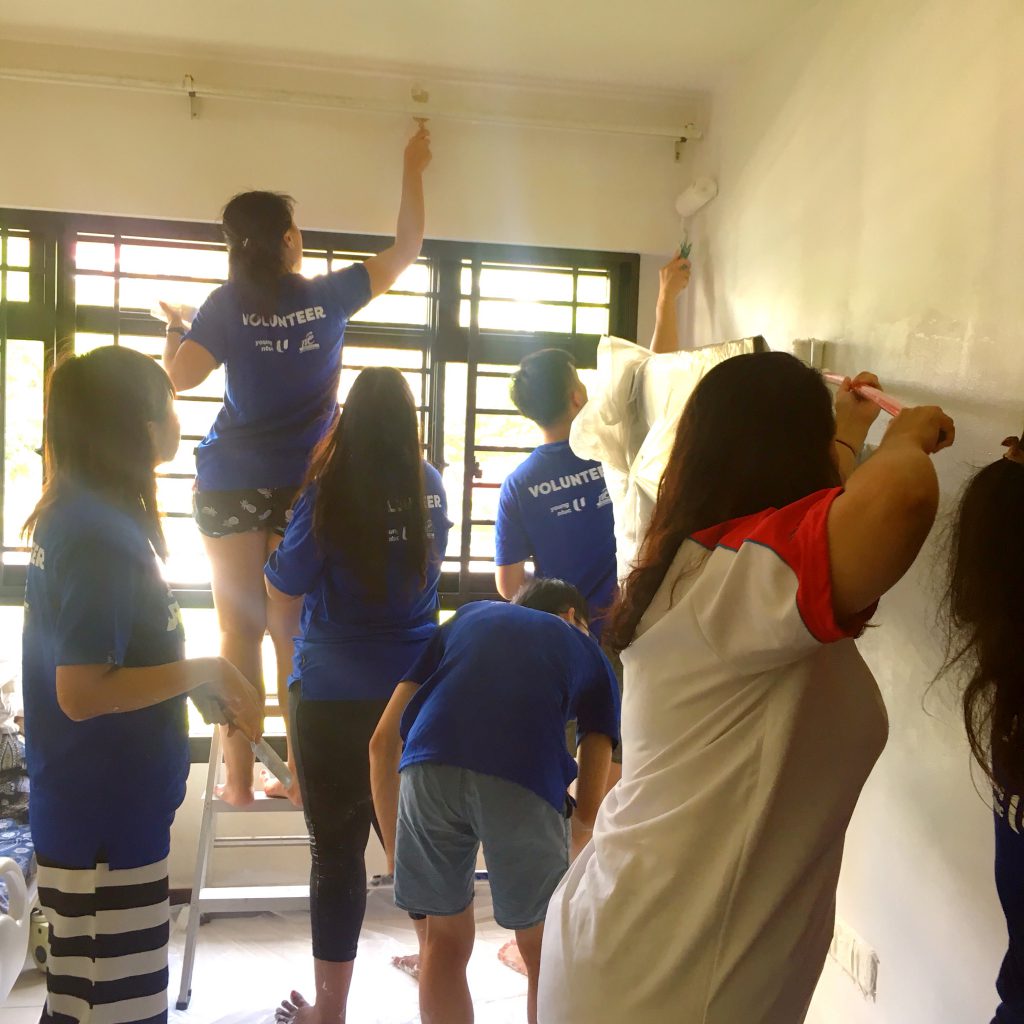

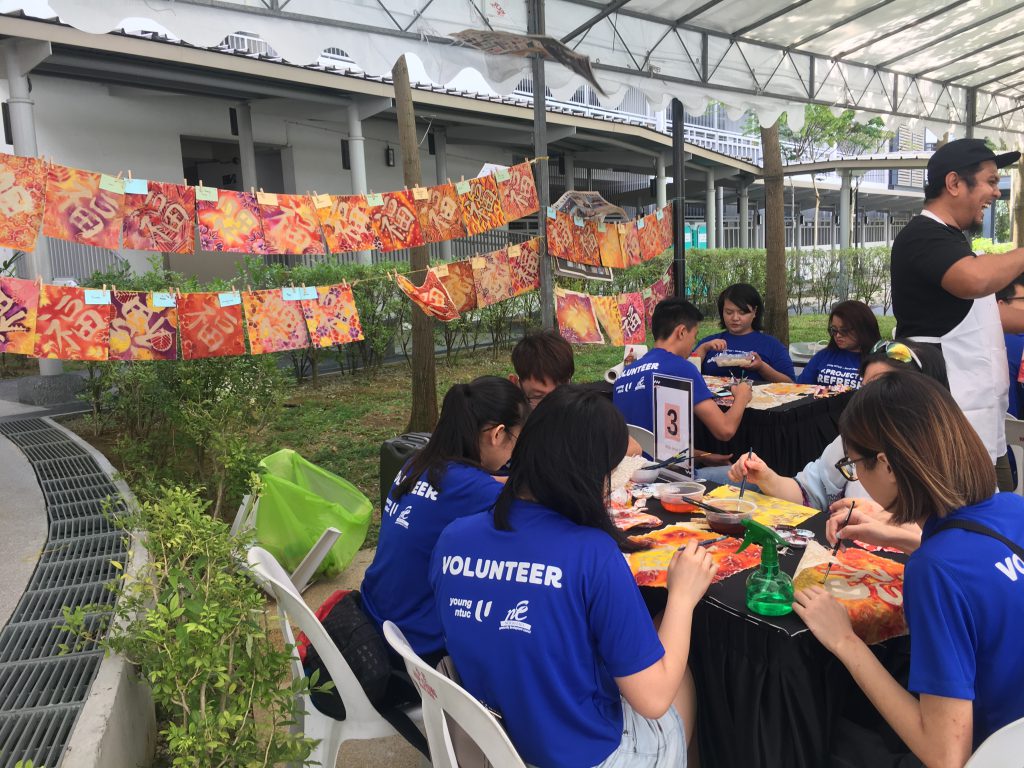
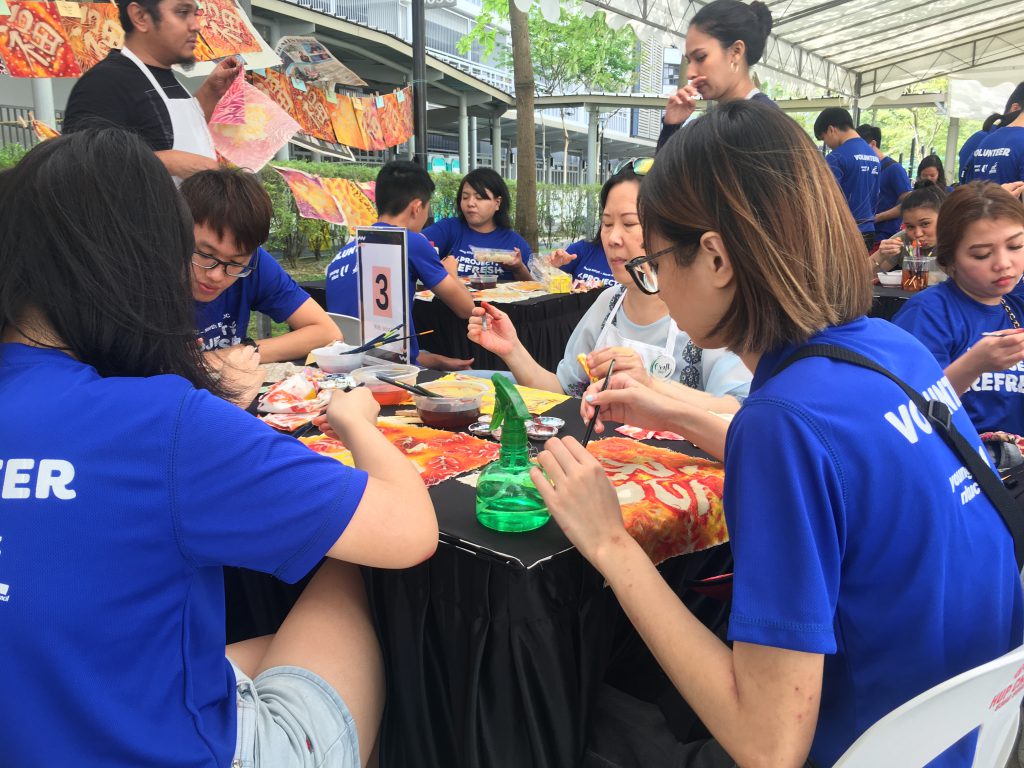
A Reunion Under Lanterns
Molly’s lanterns were later hung at the entrance of Mdm Celeste’s home. The 69-year-old retiree said as she looked up at the lanterns, “I don’t usually put these up,” as she shared about the several falls she has had, and how her bad knee prevents her from taking on any chores that require her to climb or lift heavy loads. Which was why she was especially grateful when a group of bustling volunteers came by to clean her windows, change her curtains, and decorate her home. All of those she had been wanting to do, but are too physically strenuous for her.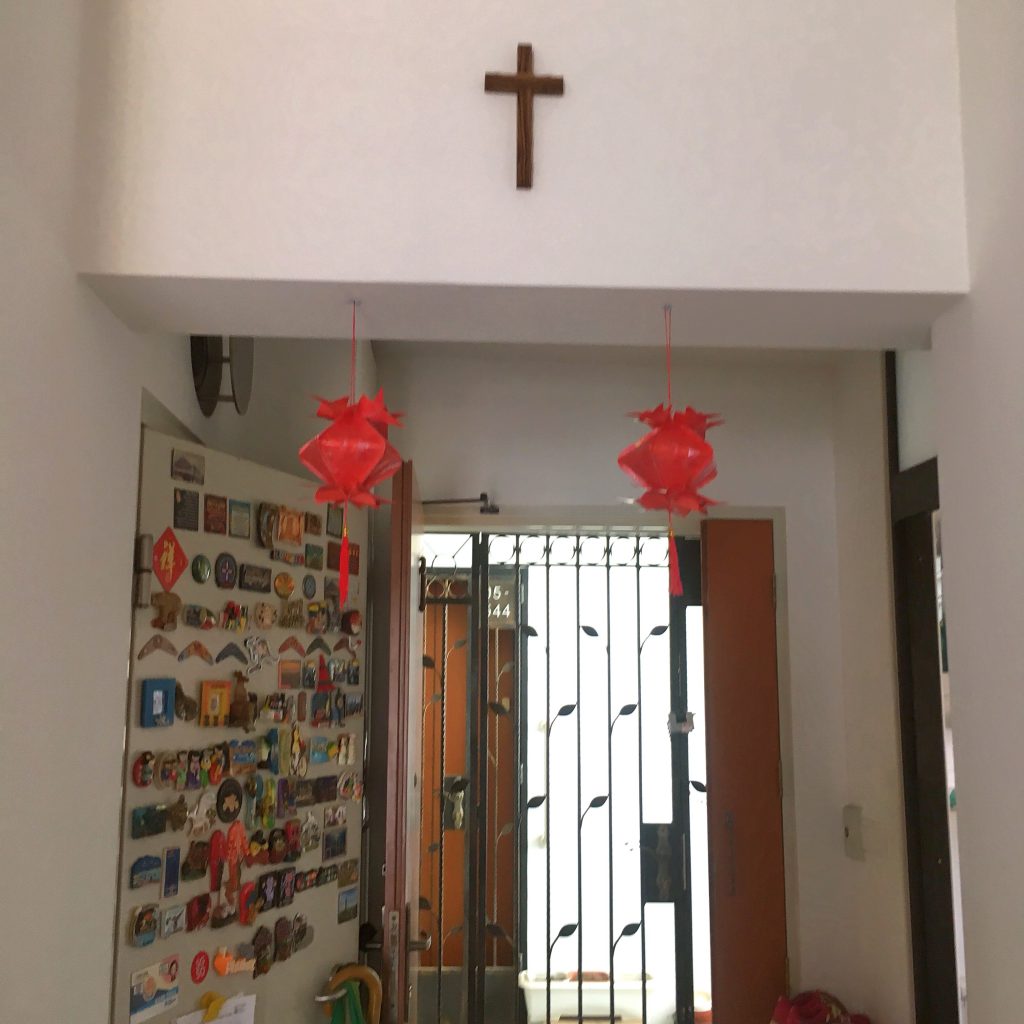
“Talking to people feels very ‘shiok’ you know?”
Beyond lending their helping hand, the company of the Project Refresh volunteers were also a significant part of the project to some of the senior residents, and vice versa. “We came here expecting a lot of clutter and many things to do, but her home is actually quite organised already. I think it’s the company that she really misses,” said 29-year-old Zaki. He volunteered expecting a physically taxing morning, but found himself enjoying the conversations with his 67-year-old resident, Madam Mariam. As the secondary school volunteers moved her carpet and mopped the floor, Madam Mariam spoke heartily about her younger days when she ran a food stall. Her sprightly movements left no hint that she had suffered a stroke just two years ago.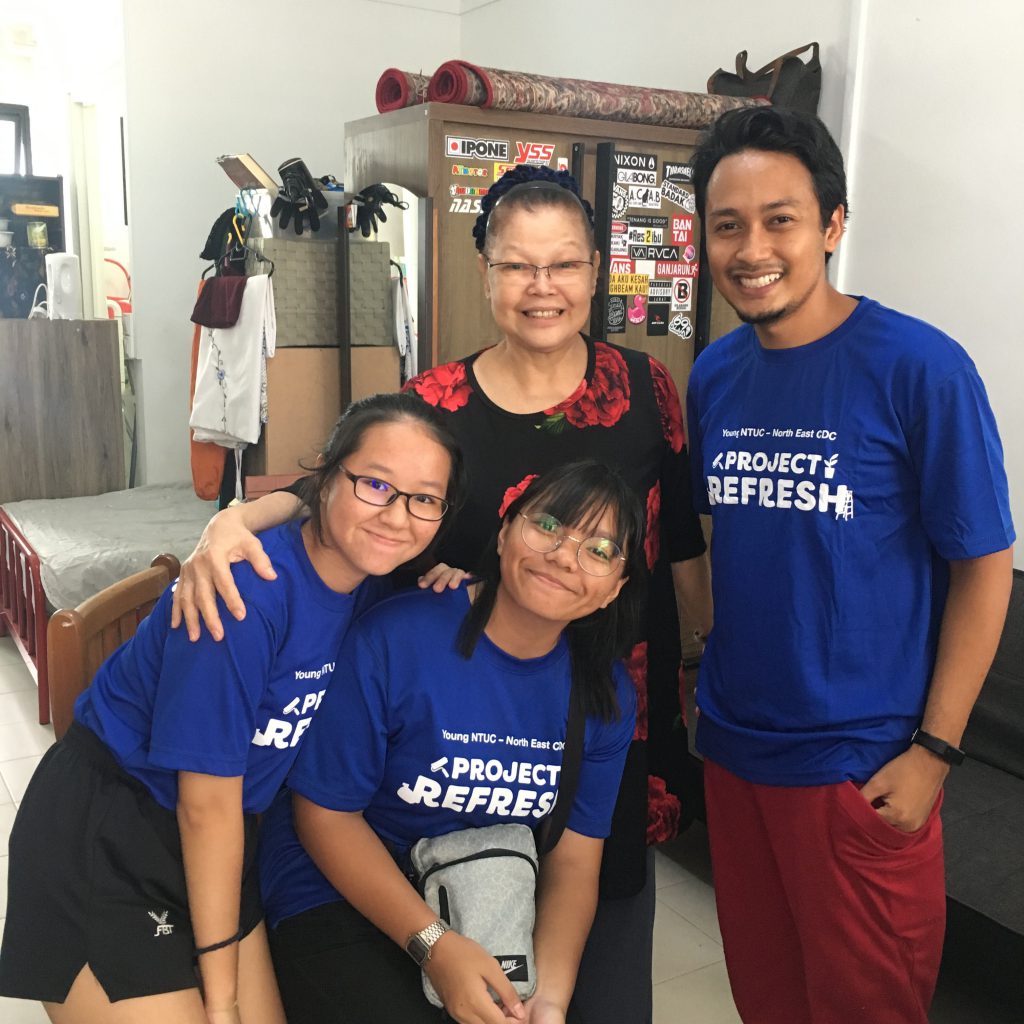
Picking Something Up From The Senior Residents
While the project was directed at giving support to the senior residents, some of the volunteers also found themselves taking away something from the residents they helped. “I have only painted once in my life, for my own house. But it’s patchy,” said Gan, a lecturer and first-time volunteer at Project Refresh. Looking at the patchy paintwork he did for his resident, Abdul Malik’s house walls, he added sheepishly, “just like that.” Little did he know, 64-year-old Malik was actually an apartment painter himself, but has had his movements limited ever since he got a stroke just a few years before. And soon enough, Malik became a painting teacher to Gan and the other volunteers in his home. As he muttered ‘aiyo’s and ‘aiya’s at the inexperienced painters (volunteers) getting paint on their own clothes and even faces, he patiently guided them with technical tips like painting with ‘W’ shaped strokes. “They might not know how to paint properly, but they have the heart. It’s very heartwarming knowing that they can use their morning for anything else but they chose to come here to help. They are very willing to learn also,” said Malik.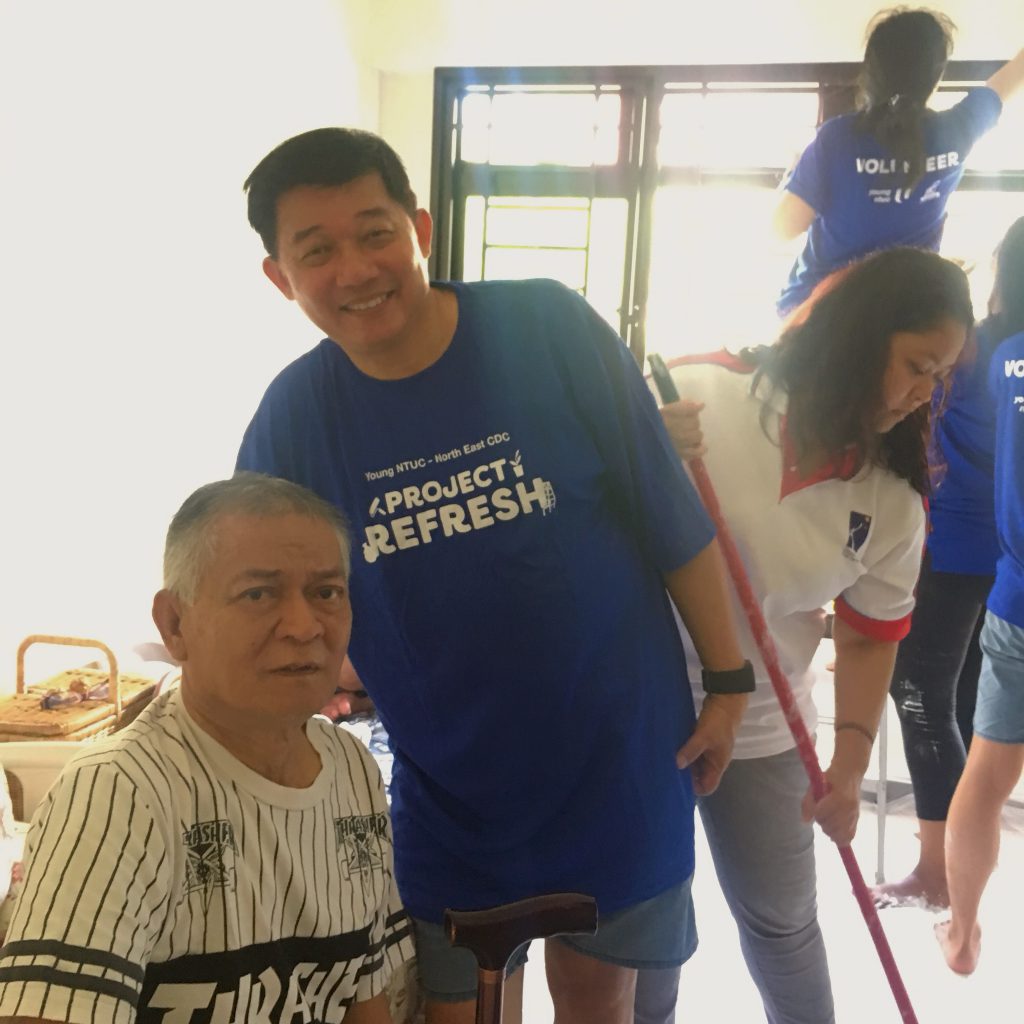
Filling Homes With Warmth
By the end of the day, 96 households received the Project Refresh treatment. In action, the volunteers are there to declutter, clean, paint, and decorate. However, the significance of them there is more than just the physical help. For these senior residents living in isolation, the commotion and presence of volunteers are rare occasions that fills their home with conversations and laughter that they otherwise lack. And for these residents, it was also a perfect start to their Chinese New Year. “They make my house feel like a home,” said Madam Mariam. This article is contributed by Young NTUC. Also read: 65-Year-Old Mdm Rebecca’s Life: A Look At The Reality Of Singapore’s Privilege Gap.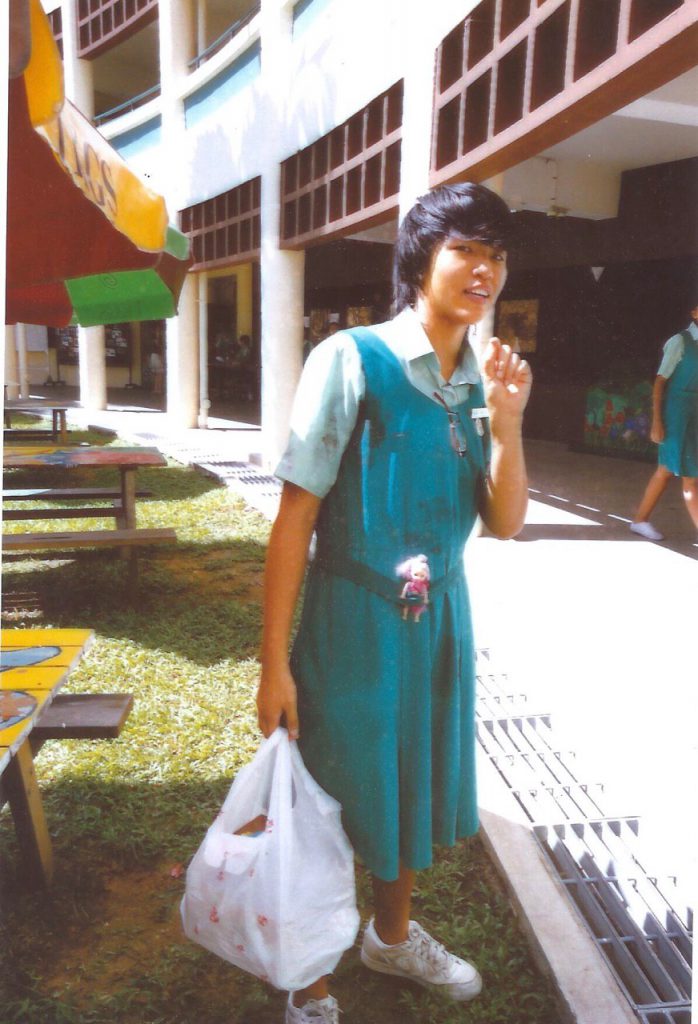
Image Credit: Cassius
How Can I Be Trans And Christian?
I was born into a devout Christian family. The kind where you will see shelves full of Christian paraphernalia the moment you step into our home. My dad is a pastor, and my four brothers and I pretty much grew up in the church. We saw the world through the lens of Christianity, and only through that — where ‘sex before marriage’ and seeking ‘permission’ from the church elders before dating are very normal. In my religion, there is only male and female, and this gender distinction is stated many times in the Bible. As Christian, the message that it is only right for one to be the gender that one is born as is clear as day. So all through my teenage years, I struggled with my gender identity, because even though I am born a female, I didn’t feel like it at all. I hated the way I looked and I hated the way I sounded. The picture I had of myself in my mind differed so much from how I looked like in reality that I dissociated a lot. The way I felt about my body and identity made me very ashamed of myself. I felt inferior all the time and because I lacked self-confidence, I found it really hard to even interact with people. I also doubted myself a lot. I thought that this was just a phase that everyone will go through. That maybe, I was just super anxious about myself and envisioning delusions to escape. The mix of unhealthy and conflicting feelings manifested itself in the way I socialised - I couldn’t. I did not know how to, and did not have a lot of close friends. I also hate bothering people with my problems. All through my teenage years up until I was 23 last year, I kept to myself and internalised all of my negativity.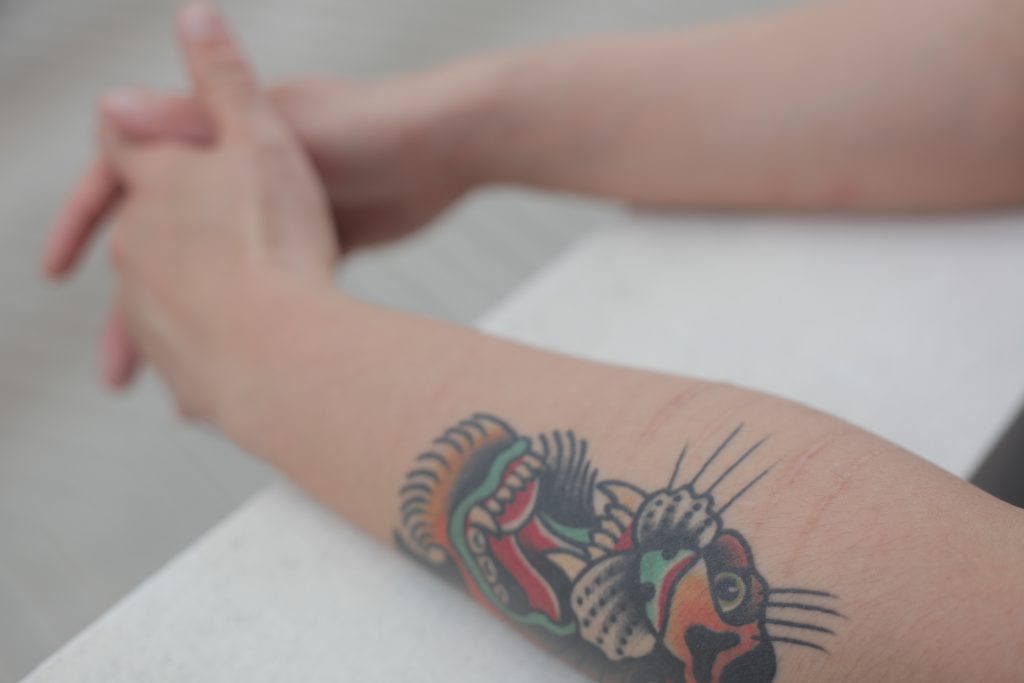
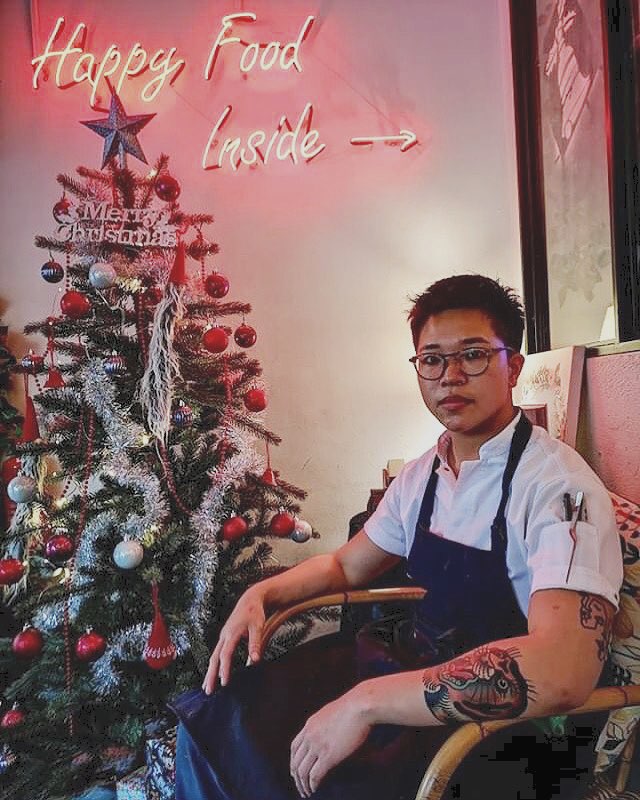
Then, I Came Out To My Parents
My mum was the first to find out. She got very emotional and over our first dinner together after she found out, she kept saying things like “the Bible is my standard, is it yours?” And, “I have a conscience, I hope you do too.” She made it clear that I am someone with no morals if I choose to be this way. That really broke my heart, because I was trying to be truthful and honest with them. I was really hoping to communicate with them, instead of us shutting each other out. When I told her about how I felt, about how I never had feelings for guys, and about all the painful struggles I had internally growing up, all she said was, “are you being honest right now? Why are you lying?”She also once said to me, “people like you never [use to] exist,” and, “people like you put us through so much pain and shame.”My dad told me that he was not going to judge me but God will, and reiterated that he will never ever change his mind on marriage being only between a male and female. I used to be suicidal. Coming out was my way of preserving my life and to respect the life that my parents have given me. Yet, my parents can only see this as my greed — that I am being selfish and trying to hurt them by being transgender. It really breaks my heart to be rejected by the people who brought me up, and whom I still love dearly. It is the very reason why I feared coming out to them in the first place. It is also disappointing that none of my brothers (except for one) ever acknowledged me for who I am either, or to be there for me.
Relearning How To Live Life
I am still trying to come to terms that my family will never accept me for who I am. The rejection still hurts, but I remind myself that it is equally hard for them to process the shock because of the many emotions involved. And I try not to let their rejection get to me. I understand that if i didn’t change my way of thinking, I would have felt the way that they are feeling now — it took me a long time to understand that they are not out to be negative towards me, it is just what they were taught to do. However, I live with guilt every single day knowing that my parents still love me. I see it through their littlest actions: when they ask me if I have eaten yet or when I will be reaching home. This guilt has often made me feel that I am not deserving of all the efforts they have put into raising me. But I know that I want to live true to how I feel. With that conviction, I also know that I have to overlook my parents’ expectations and the expectations that I put on myself. When I made the decision to be openly transgender, my whole belief system was turned upside down. But being forced out of what I am familiar with helped me get out of the pit that I had put myself into all those years.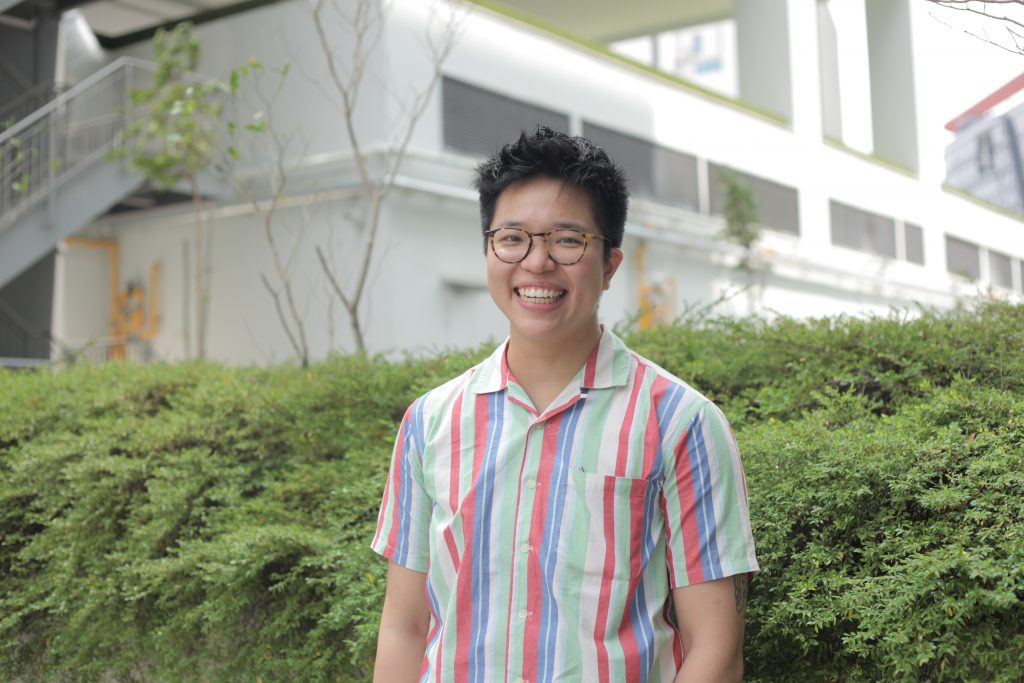 I don’t know if I can ever truly be the person I want to be — someone who is kind, and all the positives — but I think my suffering has really opened my eyes.
The rate of suicide among transgender individuals is very high. Being able to confront my denial and feelings has helped to phase out the many suicidal thoughts I use to have, because I now know who I want to be and how I want to live. Because of what I went through, I am able to persevere. However, there are many, many people who do not have the resources or support they need, and it is very hard for them to break out.
Being able to look inward and confront myself has changed my life, and it is the one thing I hope for those who are going through similar situations: Look within yourself, and learn to be vulnerable.
This story is written by Millennials of Singapore, as told to us by the featured individual.
-
Editor's note:
This is a personal story and not a generalisation of the community. We have included specific mentions of a religion in this article solely for context purposes, the Millennials of Singapore team does not condone religious discrimination and persecution.
Also read: My Sexuality, My Right: “A Stranger Wanted Me To Apologise For My ‘Lesbian Appearance'".
I don’t know if I can ever truly be the person I want to be — someone who is kind, and all the positives — but I think my suffering has really opened my eyes.
The rate of suicide among transgender individuals is very high. Being able to confront my denial and feelings has helped to phase out the many suicidal thoughts I use to have, because I now know who I want to be and how I want to live. Because of what I went through, I am able to persevere. However, there are many, many people who do not have the resources or support they need, and it is very hard for them to break out.
Being able to look inward and confront myself has changed my life, and it is the one thing I hope for those who are going through similar situations: Look within yourself, and learn to be vulnerable.
This story is written by Millennials of Singapore, as told to us by the featured individual.
-
Editor's note:
This is a personal story and not a generalisation of the community. We have included specific mentions of a religion in this article solely for context purposes, the Millennials of Singapore team does not condone religious discrimination and persecution.
Also read: My Sexuality, My Right: “A Stranger Wanted Me To Apologise For My ‘Lesbian Appearance'".THEN I GOT PREGNANT
I should have known that being careless would one day put me in a sticky situation: getting accidentally pregnant at 16. When the gynaecologist congratulated me for being 4 months pregnant, it took me a minute to fully digest what she’d said. I was stunned. I couldn’t believe it. How could I have let this happen? What are people going to say? I was not even capable enough to take care of myself, how could I bring up another human being? The first thing I did after I left the clinic was call the father of the child. When I told him about the baby, all he said was,“Are you sure it’s mine?”I didn’t expect much from him as he never signed up to be a parent. But neither had I. After all, I was only 16. After knowing that I had to deal with my pregnancy on my own, I panicked. I realised I had two options - I could either give birth to the child and somehow find a way to bring him or her up alone or I could get an abortion. When I thought about the life growing inside me, I knew there was no way I would be able to give him a life that he deserves - one with stability and a happy family, where he would be wanted and loved. But the thought of getting an abortion was heartbreaking as well. Taking a life isn’t something that I could turn back from. Once done, it was done. I’d have to live with that decision for the rest of my life. I kept asking myself: Was I prepared for that? Could I live with myself after that? The week that followed was torturous. I had decided that getting an abortion was the best option for me at the time. It took me a lot of strength to make the call to book an appointment for the abortion. At that point, I had only told two people about my pregnancy - my father and my best friend. I wasn’t expecting the reaction I got from my father. I wanted him to scold me, scream at me, tell me how wrong I was for not listening to him. But he didn’t do any of those things. He didn’t say anything and just quietly paid for the abortion. I knew that I had disappointed him. And I knew I didn’t deserve his help.
THE GUILT OF AN ABORTION
Despite telling myself repeatedly that this is the best decision for me, I couldn’t help but feel like a murderer. Knowing that I was about to take a life was the worst feeling in the world. I kept thinking of every possible thing I should have done that could’ve prevented this day from ever coming. “I should have used protection.” “I shouldn’t have slept with that guy.” “I should’ve stayed at home that night.” But it was too late now. On the day of the abortion, every second I laid in that bed waiting for the nurse was agonising. The last thing I remember before the anesthesia kicked in was looking down and whispering to my belly,“I’m sorry, but I don’t have a choice.”I woke up relieved that the procedure was over, but at the same time, I felt a wave of bottomless sadness. I still felt guilty. That night, a child appeared in my dreams. In the dream, I saw the back of the child seated on a chair. I remember feeling terrified as I stared at the child’s head, unable to move. I woke up in tears that night. I cried myself to sleep every night and woke up crying every morning as the nightmare became a recurrent thing. The fear and crying in the middle of the night became a vicious cycle and was one of the most dreadful periods of my life. Thankfully, the nightmares stopped a month later.
NOT AGAIN
Less than a year after the nightmares stopped, I found myself looking at the pregnancy kit and muttering to myself, “not again.” I was no longer 'sleeping around' with guys I barely knew and had just got into a new relationship with my then-boyfriend, Timothy*. My heart sank as I internally reprimanded myself for being so careless again. I was angry at myself. Had I learnt nothing from the first time? When I told Timothy about it, we both decided that we weren’t ready to be parents and we couldn’t give our child a good life, so we opted for an abortion. To my surprise, there were no nightmares this time. But I was filled with self-doubt: Did I not feel guilty anymore? Shouldn’t I have felt guilty?I had made so many mistakes in the past, and now I felt nothing about killing a child.Does that make me a horrible person?
